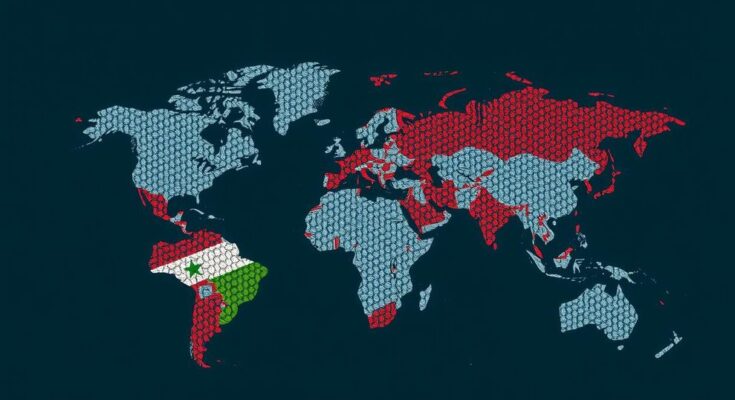The humanitarian crisis in Syria is worsening amid escalating violence, leading to the suspension of aid operations. Survivors of the Iranian protests demand accountability for human rights violations, while South Sudan is urged to ensure civic freedoms ahead of its democratic elections in December 2026.
The humanitarian crisis in Syria is worsening due to intensified hostilities, as highlighted by the UN Office for the Coordination of Humanitarian Affairs (OCHA). A tragic airstrike at the Ad Dabousiyah border crossing with Türkiye resulted in the death of a volunteer from the Syrian Arab Red Crescent and several civilians, leading to the suspension of all humanitarian operations at border crossings until further notice. The escalation of violence in Idlib and western Aleppo has particularly devastating effects on children, with recent artillery shelling claiming the lives of three boys under age 14 and injuring numerous other children. This violence has compelled over 35 non-governmental organizations to halt their humanitarian initiatives, and fourteen health facilities along front lines have ceased operations, leaving many individuals without critical services. Nevertheless, aid continues to flow through the Bab Al-Hawa border crossing, with recent deliveries from major UN agencies.
In Iran, survivors of the 2022 “Women, Life, Freedom” protests are calling for accountability for the severe human rights violations they experienced during the government crackdown. The Independent International Fact-Finding Mission (FFM) has gathered testimonies from over 50 Iranian survivors in Germany, detailing torture, arbitrary detention, and injuries. The FFM Chair, Sara Hossain, emphasized the necessity of a victim-centered approach to justice, while survivors also discussed the pervasive state surveillance that hinders accountability. Members of the FFM underscored the importance of solidarity and support for survivors continuing their fight for justice, with a report due in March 2025 proposing recommendations for rehabilitation and reparations.
In South Sudan, Nicholas Haysom, head of the UN Mission in South Sudan (UNMISS), urged provincial governors to enhance civic and political freedoms as the country approaches its first democratic elections slated for December 2026. During the annual Governors’ Forum in Juba, Haysom emphasized the integral role that state leaders play in mitigating the root causes of conflict and fostering an environment where citizens can actively engage in the electoral process. He called for effective public financial management and service delivery to ensure trust and participation while stressing the need for security improvements through training for the Necessary Unified Forces.
The ongoing conflicts in Syria have led to significant humanitarian challenges, exacerbated by recent airstrikes that jeopardize the safety of aid workers and civilians alike. In Iran, the violent government response to the 2022 protests has drawn international attention, with calls for accountability and recognition of human rights violations. South Sudan, in preparation for its first democratic elections, is under pressure from the United Nations to ensure that political freedoms and civic engagement are prioritized to foster peace and stability.
The article outlines the critical humanitarian situation in Syria resulting from escalating violence, the plight of Iranian survivors seeking accountability for human rights abuses, and the efforts in South Sudan to prepare for democratic elections. Each scenario underscores the necessity for international attention and action to uphold human rights, support relief operations, and ensure political transformation in regions affected by turmoil.
Original Source: news.un.org




